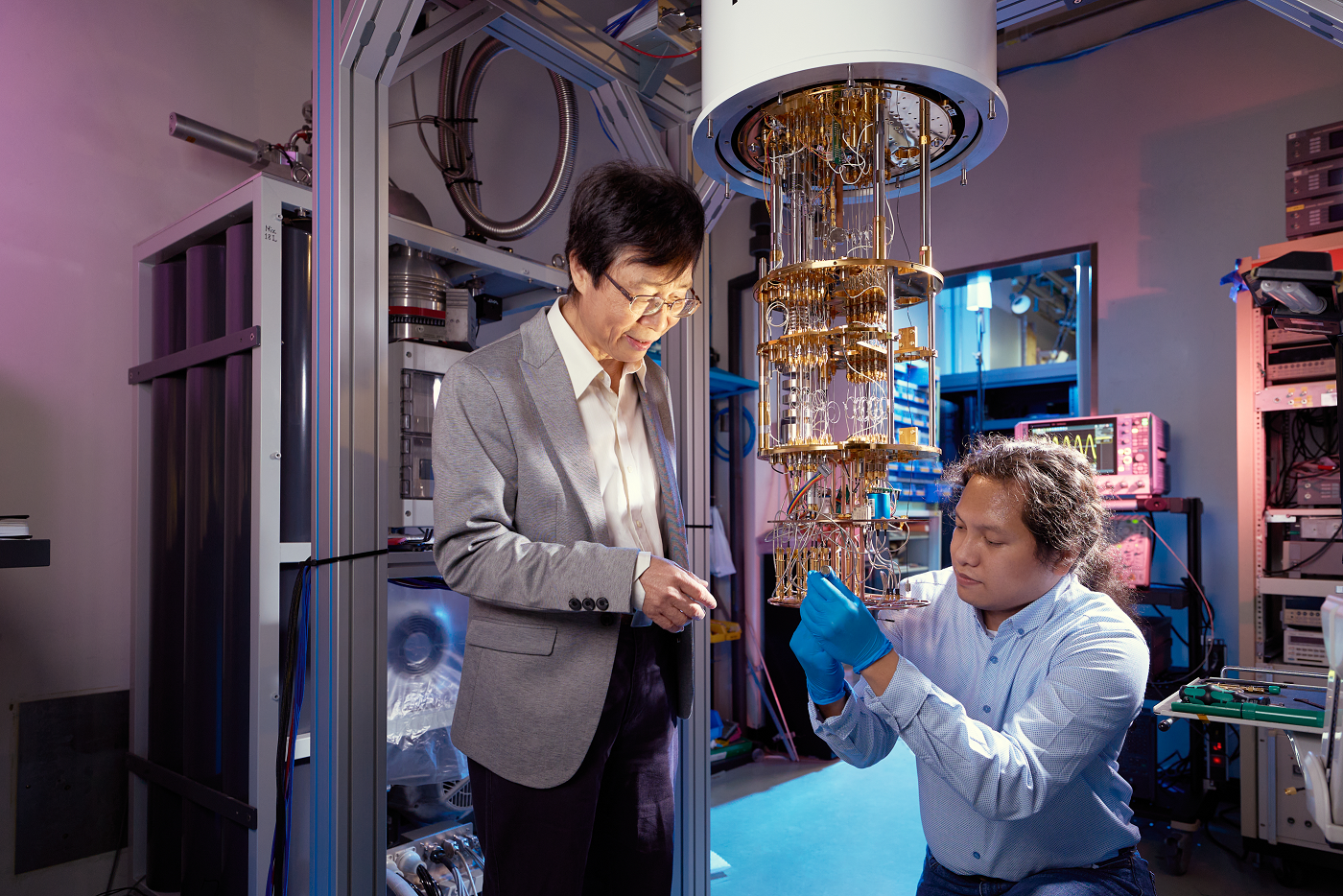Academia Sinica, Taiwan’s national research institute, has developed a 5-qubit superconducting quantum computer, surpassing its initial goal of a 3-qubit system. The quantum bit logic gates have a fidelity rate of 99.9%. The project, led by Dr. Chii Dong Chen, was funded by the National Science and Technology Council. The quantum computer will be available online for project collaborators and will serve as a research platform for developing extremely low-temperature CMOS and parametric amplifiers. The project is a collaboration with several universities and research institutes, including the University of California, Santa Barbara, and the University of Wisconsin-Madison.
Academia Sinica’s Quantum Computing Breakthrough
Academia Sinica, a Taiwan-based research institution, has made significant strides in the field of quantum computing. In 2023, the institution successfully overcame various challenges in the fabrication, control, and measurement of quantum chips, leading to the creation of a 5-qubit superconducting quantum computer. This development marked a significant milestone in the field of quantum computing, a technology with computation potential far beyond current supercomputers. The quantum computer will be made available online to project collaborators.
Dr. Chii Dong Chen, a Distinguished Research Fellow at Academia Sinica’s Institute of Physics and Research Center for Applied Sciences, played a key role in this project. The project was part of the quantum technology special project funded by the National Science and Technology Council. The initial plan was to build a 3-qubit quantum computer by February of 2024, but the research team surpassed this goal and built a 5-qubit system by October of 2023. The fidelity of the quantum bit logic gates reached an impressive 99.9%.
Quantum Computing: Potential and Challenges
While quantum computing technology continues to advance, there are still hurdles to overcome before it can be applied to business and daily applications. The 5-qubit superconducting quantum computer developed by Academia Sinica is provided to project collaborators for research and testing. It also serves as a platform for other research and development units to develop extremely low-temperature CMOS and parametric amplifiers.
Academia Sinica’s Quantum Computing Team
Academia Sinica’s quantum computing team has delivered impressive results with a smaller budget and in less time than other countries. President James Liao noted that the success of this project validates the nature of scientific and technological research. Patience in solving fundamental problems is essential for eventual application breakthroughs. This advance by Academia Sinica is expected to drive research and industry development in quantum technology and attract domestic and international talent to help Taiwan gain advantage in this field.
Collaborative Effort in Quantum Computing
This project is a collaboration of domestic and international teams, including the Industrial Technology Research Institute, National Applied Research Laboratories, National Changhua University of Education, National Central University, National Chung Hsing University, the University of California, Santa Barbara, and the University of Wisconsin-Madison. Funding is provided by the National Science and Technology Council and Academia Sinica.
Quantum Computer with 5-Qubit Chips Launched
Academia Sinica unveiled a quantum computer based on 5-quantum-bit (qubit) chips, connecting the device to the Internet to enable its use in scientific research by the institution’s members and partners. The computer’s launch marked another milestone in the nation’s research into and development of quantum computing.
Taiwan Quantum Computing: Future Prospects
Although great strides have been and are being made in quantum computing technology, there is still a long way to go for its practical application in the commercial sector or for personal use. The 5-qubit computer is now available for use as a test and development platform for quantum computing, ultra-low temperature complementary metal oxide semiconductor (CMOS) and operational amplifier research programs.
Quantum Computing in Taiwan
The Taiwanese research team has consistently outperformed expectations despite being given less time and resources than the quantum computer research programs of foreign nations. The program’s successful achievements are a basic part of the technology, and researchers need time to resolve foundational problems before breaking through the next bottleneck. Academia Sinica’s work in quantum computing is intended to blaze a trail for the nation’s private sector and generate the momentum necessary to sustain the investment in talent and education.

